The psychology behind conspiracy theories
One of the tricky things about human diversity is that it comes in all shapes and sizes. It even comes in forms which we do not understand or do not like. Not liking something is not the valid reason for not trusting something and not knowing something is not either. When math starts holding hands with philosophy then we can say that anything is possible but the matter of how probable it is makes us go back to critical thinking and dismissing things with low odds. It is unfortunate but true, human psychology dictates that it all comes down to trust and how is trust generated? I want to say that it is evidence-based but nope, it is something different.
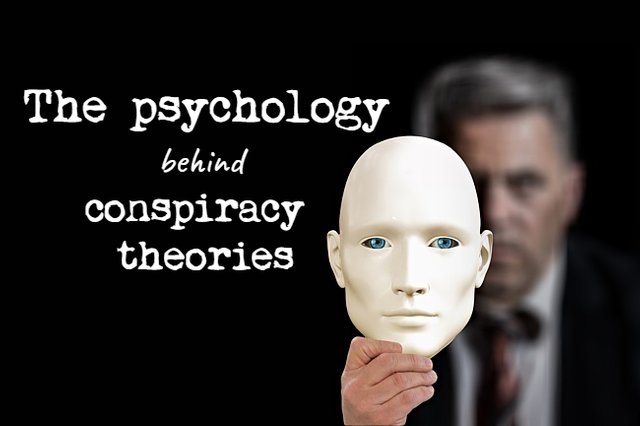
CC0 image, Pixabay, author: geralt
It is very important to distinguish the difference between what is a conspiracy theory and what is not because the term has been thrown around a lot lately and used to either discredit the person talking or to bring more clicks to a news article. I will also explain where and how conspiracy theory is born and what psychology has to do with it. It will be quite interesting to read some of your comments below and I am curious about what your stand on this is.


I have almost zero knowledge about cars. I have opinions about them and if I try really hard, I might write a sentence or two that would make sense but that is about it. Same goes for heart surgery, ballet, history of cats and a huge number of other topics. I think that is important, to know what I do not know. When our car broke down a couple of years ago, I had no problem with trusting the car mechanic to fix it. I value all the education and experience he has so it was an easy decision to make. My father had a big heart surgery last year and I didn't think for a second that I was going to be the one who will operate on him. I trusted the surgeon who performed the operation and it all went fine.
Everybody has the right to their opinion. We even have the right to speak or write those opinions down and put more value on some than on others. The question is which opinions hold more value than others and what criteria are we using to determine it. You might argue that evidence behind something holds the biggest merit and I would agree but who is in charge of the evidence? Which evidence is actually evidence and not just another opinion? Most of us agree that this is the moment where science comes in and saves the day. Objective, fact-based, measured, calculated, and double-checked information holds the biggest value and is considered to be the truth. The problem arises when we question either the scientists or the data they have. Why would we question it? There are many reasons why.
will believe in conspiracy theories?
There were two very interesting social psychology studies that tried to answer that question. One of the interesting findings was that inflated confidence in one's understanding of politics is associated with the tendency to believe in political conspiracies. The more people are convinced they know something, the more are they likely to believe in conspiracy. When people who overestimate their knowledge about a certain subject are presented with limitations of their understanding, it leads them to be more informed and have evidence-based opinions and beliefs. The second scenario is when people see society's defining values are under siege and threatened. That is when conspiracy comes to play. We tend to look for "the bad guy" and simple explanations. Overly simplistic explanations for complex events are often inaccurate but people still believe them because it resonates with their intuitions and the need to assign blame. Psychology and neurobiology are behind everything and I so wish and hope that people will soon realize that knowing yourself is the biggest knowledge one can have. You can read those two studies here:
The illusion of explanatory depth and endorsement of conspiracy beliefs by Joseph A. Vitriol, Jessecae K. Marsh
The role of system identity threat in conspiracy theory endorsement by Christopher M. Federico Allison L. Williams Joseph A. Vitriol


If you think that asking questions and not having a 100% belief in everything you hear/read is a definition of a conspiracy, you are wrong. It is actually one of the definitions of science. You would think that science is about giving answers but it is about questioning the answers, reevaluating itself, and asking more questions. Questions are always more important than answers. Without questions, there would be no answers.
is what conspiracy is not and what conspiracy is
The beauty of science is that it is constantly questioning itself and evolving, looking for more answers and reevaluating what it currently knows. There are no stop signs, only go go go. What we once considered to be the truth was disproven and what we once calculated was calculated again. Science grows with the measuring instruments so you will never hear a scientist say how something is definitive. Everything we know is true to the extend of our measuring instruments and proven to be the most probable due to our current knowledge and understanding. Change, growth, and progress are the only constants. A scientific mind has question, doubts, and curiosity while a conspiracy mind has all the answers. One answer actually, the one about secret world order who is hiding the real truth. Everything we see is fake and manipulated, nothing is true.
A review of current literature on the psychological factors that appear to drive conspiracy belief and the research being done has shown how conspiracy belief comes from epistemic, existential, and social motives. It is a self-defeating form of motivated social cognition. You can read the full review here:
The Psychology of Conspiracy Theories by Karen M. Douglas, Robbie M. Sutton, Aleksandra Cichocka
The important thing to have in mind is that questioning the science or not believing its finding is not what conspiracy theory is. Psychology sees no problem in having doubts or critical thinking, on the contrary, those things are encouraged. When a person starts talking about certain people controlling things, lizard people in power or some scary people meeting in secret to control the world than the fun stuff happens. Paranoia is what sets conspiracy apart from normal questioning and doubting. There is always something bad and negative going on, someone somewhere is trying to hide the truth in order to do wrong by people. You will never see a positive conspiracy theory or a happy one. Psychology is pretty clear on why that is.
If you think that everything should be questioned and we should try to learn more, find more, and discover more then you are using your ability of critical thinking and are not a conspiracy theorists. If you are, on the other hand, convinced how you have the ultimate and final answer how some evil party is in secret power and controlling the world and not willing to question that, then you are a conspiracy theorists. It is actually pretty simple, do you believe there is some evil conspiracy going on?


A team of French and Swiss scientists have set out to investigate and find out are some people predisposed to believe in conspiracies and they found that conspiracy theorists are more likely to think “everything happens for a reason” and things are “meant to be”. Sounds familiar? Creationism and believing in conspiracy theories may seem different when you first look at them but they are both associated with powerful cognitive bias named teleological thinking. They share a perception of final causes and overriding purpose in naturally occurring events.
Everything starts and ends with psychology and neurobiology. Everything is about what we know and how we perceive ourselves and the world around us. The proneness to explain socio-historical events in terms of secret and malevolent conspiracies now has robust evidence of a teleological link. In 3 correlated studies with 150, 1250, and 700 people from Switzerland and France, results showed how teleological thinking is associated with the conspiracist beliefs. They both have a final cause to explain complex worldly events that comes from a hidden involvement. Here is the link to the paper:
Creationism and conspiracism share a common teleological bias by Pascal Wagner-Egger, Sylvain Delouvée, Nicolas Gauvrit, Sebastian Dieguez
Just as conspiracy theories are an attempt to explain the inner workings of the world around us, the psychology is working on deciphering why people believe them. Stephan Lewandowsky, Chair in Cognitive Psychology at the University of Bristol believes how a conspiracy is like chicken soup for the soul because it is much easier for people to handle conspiracy than it is to think this is just a chaotic world. It is, in a way, a comforting experience.
Believing in a conspiracy theory provides a sense of belonging to an enlightened and superior in-group that sees through the lies of the conspirators and is not fooled like the rest of us. It gives them a sense of power and superiority. They are awaken to the truth while the rest of us are asleep. Another thing we have to have in mind is being proportionality bias as a psychological factor. People have a natural tendency to assume that big events must have big causes so everytime there is some big news or an event, something big must be behind it.
What is the biggest problem?
For the true believer, conspiracy theories are non-falsifiable. Evidence that supports the conspiracy, no matter how weak, is accepted and evidence that contradicts the conspiracy is rejected as being either misinformation or disinformation planted by the conspirators. It is either their way or no way. Any argument or evidence against it is considered fake or planted so having a rational and logical argument is a challenge. You can not convince someone about something if they tell you that all the data you have is fake and planted. Do you know what the biggest problem with the internet is? You will find exactly what you are looking for no matter what that is. Dismissing the science as planted, fake, or controlled and finding people who agree with you is all the evidence conspiracy needs.


British psychologist Karen Douglas and her colleagues found that reasons for believing in conspiracy theories can be grouped into three categories: a desire for understanding and certainty, a desire for control and security, and desire to maintain a positive self-image. When it comes to understanding and certainty, it is natural for humans to ask why things happen the way they do. Unfortunately, we pick the answers that comfort us and fit into our worldview. People who believe in conspiracies have a vested interest in maintaining them because they provide a sense of understanding and certainty that is comforting.
We all have a desire to control our lives and feel safe. When the alternative explanations feel threatening, some are more inclined to believe the one which feels more safer. If global temperatures are rising catastrophically due to human activity, a person would need to change her lifestyle but if climate change is false, she can continue living like nothing is happening. That is called motivated reasoning and it provides a sense of control and security.
The most common thing people who believe in conspiracies have in common is maintaining a positive self-image. People who feel socially marginalized or unhappy with their lives are more likely to believe in conspiracy theories than those who are satisfied, happy, and fulfilled. Talking to others who hold similar beliefs provides a sense of community and a belief that a person is the holder of privileged knowledge. She is convinced that she knows more about the subject than others do. You can find more about this in the study that I have already mentioned:
The Psychology of Conspiracy Theories by Karen M. Douglas, Robbie M. Sutton, Aleksandra Cichocka
Is there a way to reason with them?
You could devote your time and energy into educating and talking to people who believe in conspiracy theories but you will likely fail in your mission to convert them. This is because while you are arguing facts, they are defending their sense of security and positive feelings about themselves. Self-image is more important than facts because it holds a risk of completely losing our sense of security and trust in who we are. Civil conversation with people who are destroying the rules that govern conversation itself is not possible because you can not engage with people who are impervious to facts. The only thing you can do is react with love. Trust me on this. Well, if not me, there is science that backs my claims lol. Yale Law professor Stephen L. Carter in his 1998 book “Civility" explained how after asking a person a question we should first paraphrase what they have said so they know they’ve been heard. We should show care for their destiny and soul even if we do not agree with them because it is too easy to respond to anger with anger. They do not react to reason, they react to emotion and if they feel good around you, there is a bigger chance that they will one day listen to you.
The biggest thing we should all be aware of is that we can not change anyone but ourself. Try to learn about a person and where she comes from. What drove her to conspiracy and what is behind her motives. What is her life like? If you replace your own anger with compassion, you will react with love. With providing love you are also providing a listener for them that is not like them. They will be seen and heard and you will maybe address what has pushed them to be where they are now. Fighting fire with fire never works, being angry at those angry at you and yelling when they are yelling does not either. This world needs more love, it can never have too much love and too much happiness. Work on that and you are working on everything.
If you are interested in learning more on this subject, check out these REFERENCES:
New research predicts likelihood that one will believe conspiracy theories from sciencedaily.com
Why Do Some People Believe in Conspiracy Theories? from scientificamerican.com
Why believing conspiracy theories feels so good from theoutline.com
Scientists discover the reason people believe in conspiracy theories from independent.co.uk
Why Do People Believe in Conspiracy Theories? from psychologytoday.com

Until next time,
KEEP YOUR SMILE ON!
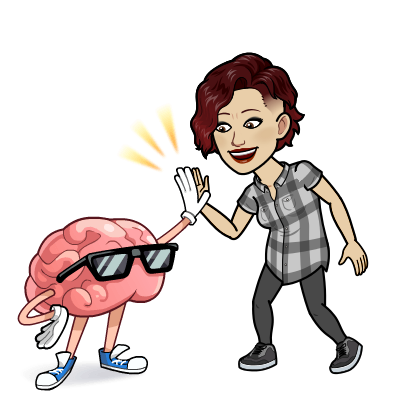


Image sources AND LICENCES in order of appearance:
- all images used in this post are free for commercial use, they are royalty free with the links to original images provided under them
- titles are made with the CC0 image from Pixabay that can be found here
- line divider that I use is from FREE CLIPART LIBRARY, and is here
- my bitmoji avatar was created on https://www.bitmoji.com/, visit the site to create yourown
PROUD MEMBER OF:

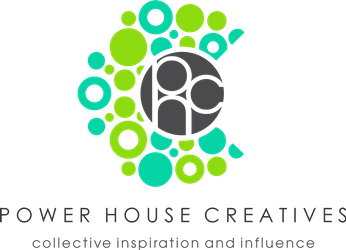



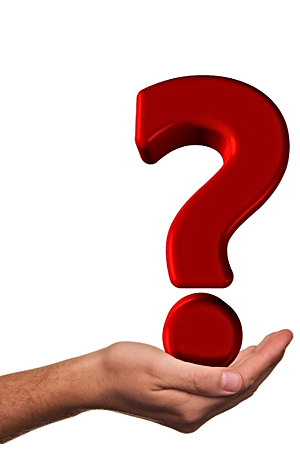

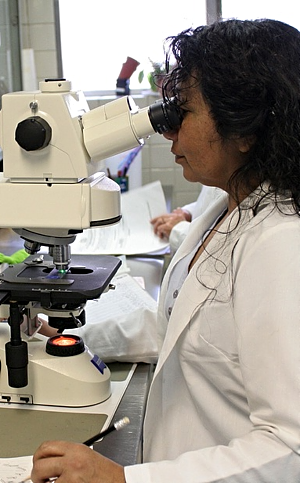

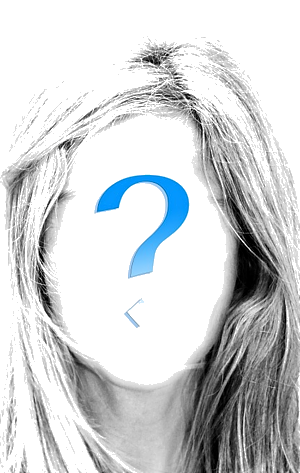


I love the way you distance yourself from the conspiracy theorists... Like they are a breed of mentally ill people, or that you are not a part of the same specie... Are you maybe trying to "maintain a positive self-image" ?
It's funny that most of this "research" are being pushed by BBC, CNN, MSNBC, psychology, and governmental agencies
http://www.antidiscrimination.justice.nsw.gov.au/Pages/legal-cases/Conspiracy-theory-belief-assumed.aspx
or
http://www.bbc.com/future/story/20180124-the-enduring-appeal-of-conspiracy-theories
@ura-soul I would love to hear your opinion on this, it's an interesting topic but it has been completely misinterpreted.
@zen-art , I think your vision of a conspiracy theorist is probably a mix between Alex Jones and a creationist.
What if I tell you that there's a lot of skeptics out there, that do not trust their government, as history has continuously proved that the trust can be breached.
I've realized that a lot of people are mocking conspiracy theorists, because it reassures them, it makes them feel righteous, it's really about your own image, and your own definition of truth and order.
They're often the same people mocking religious people (I am agnostic in case the insults start flying), belittling their belief system while imposing one truth to other through science. "Scientism" can become a dogma too, and I am saying that while still being a believer of science and a pragmatic, but everyone knows that data can be tempered with, changing the result of an experiment.
As @natubat suggested below, I strongly urge you to listen to James Corbett from @corbettreport , and if you don't I still respect your opinion as you have a lovely writing, and I promise to chill :) because it was an interesting article at the end of the day, and food for thought for a lot of people, so thanks for that.
I do not mock conspiracy people. A couple of my friends are really deep into it and I am only trying to learn and understand them. Skeptics and those who apply critical thinking are not in my mind conspiracy thinkers and I tried to explain that in the post. The difference is between questioning and seeing evil everywhere. The psychology is pretty clear on this, if a person is obsessed with a certain topic and sees evil skeems behind it then that is not healthy not for the person and not for the people around her. Questioning everything is important, it is what pushes the society forward but when people refuse to accept the answers simply because they do not understand them or because they are not in line with their world view or religious beliefs that is the moment when the problem arises.
I think you have mistaken me with someone. That kind of behavior is not found on my blog page, not from me and not from my readers. This is a safe place of love where you are accepted as you are.
I apologize, it was a little out of line, I can see that you are a kind person and I still enjoyed the mental stimulation to express myself this morning.
That's the problem, psychology is not an unilateral science, and a lot concepts are opened to interpretation. Modern psychologists for e.g rejects a lot of Freud's notions, it just show that the science evolve with time. It's probably important to add that most psychologists and therapists are themselves riddled with social and behavioral illness, and that the drug business is very lucrative, but quite inefficient to answer today's core issues with patients.(E.g: Opioid crisis.)
I couldn't agree more, but that's where statements to understand "the psychology of a conspiracy theorist" lead to the most dangerous type of assertions, and prevent people to "question everything" because they get stopped in their tracks right before explaining their argument.
That's for me where the real issue is, the word "conspiracy" is a word that was created in the US, and bastardized during "Operation Mockingbrid" in the 50s.
(All those infos are online to be found)
Every era had the establishment questioning the mind of individuals being out of the norm, minds with a different belief system than the general consensus, or just people thinking out of the box.
Before the 50s, the article could have very well been called "The psychology of a communist" in the beginning of the XXth century, or "the Mind of a revolutionary" in the XVII century, and prior to that "the faith of a heretic" in the XII century crusades... I am sure you get my point :)
My favorite quote comes from one of my favorite scientist, bongo player and theoretical physicist Richard Feynman:
What I cannot create, I do not understand.
Yup, that is the beauty of it, it grows.
Did it stop you from making or explaining your argument? I did not and I am glad for that. Just because I or anyone else says or writes anything does not mean that people should stop speaking their mind. The point is to continue talking and discussing. I see no problem behind "psychology behind" anything, you, me, theorists of this and that. There is beauty in understanding how the human mind works and what triggers our behavior.
I really learnt with time to be comfortable with my core belief, but in most cases, because of the witch hunt against "conspiracy theorist", I really stopped sharing my point of view, it always ends up the same way, with a belittling and very short sighted understanding, often due to misconceptions, misinterpretations, or just plain lack of interest on a subject.
I am glad to see we can have a nice conversation and respect each other's opinion.
Thanks for your article nonetheless, and the food for thought. Staying zen :) pays off !
That 'witch hunt' has already started some time ago, but on FaKebook they now take it to another level as they are now hiring people to search for 'fake news'. Because who decides what's fake and what's not? To me, it sounds more like more centralization and pushing their agenda forward. With 'their' I mean...well, you know what I mean. There, I said it. 😜 https://www.cnet.com/news/facebook-is-hiring-fake-news-fact-checkers/
Yeah I couldn't believe this shit, and they even have ads for "journalists jobs" at Facebook, at what point we just admit that we live in George Orwell 1984 ahahah...
Staying zen always pays off. People do not believe me but happiness truly comes from within and when you are zen there is no person you can not talk to and appreciate for what she is. Thank you for being on my path today and brightening it up with our conversation 💚
I agree that this article is overly simplistic and biased in a few common ways. Firstly, 'conspiracy' is literally a crime - people are charged with conspiracy every day. There is absolutely nothing about conspiracy that is 'woo woo' or leftfield. Theories are a concept that is absolutely part of the scientific method. So given these two solid facts, it should be obvious to anyone with an open mind and heart that theories about conspiracies can themselves be 100% scientific. What do police do? One part of their role is to examine evidence of conspiracies and assess the possibilities. In fact, the judicial system also effectively deals with conspiracy theory all day long. Police can be described as professional conspiracy theorists and it is only the negative connotation that has been attached to the phrase 'conspiracy theorist' that has people associating the idea primarily with nonsense instead of accurate application of science.
Having both a background in science and having had experience in numerous industries at many levels, I have seen numerous real life conspiracies. Let's remember again here that a conspiracy is literally only an agreement, that is hidden from plain view, to do something criminal. It should be abundantly clear that this occurs all day long around the world.
This is false. What is a 'conspiracy mind'? Is a police officer who is professionally identifying conspiracy someone who has a 'conspiracy mind'? Does a 'conspiracy mind' only think about conspiracies? Are thoughts about conspiracies mutually exclusive with the rigour of the scientific method? In truth, conspiracies can be and are often assessed to a high standard and are indeed eventually proven to be real conspiracies. This should be obvious but apparently it needs to be spelled out.
In knowing yourself, you can come to know the extent of your own denial and also the extent you have towards bias. You can also come to know the extent to which such things can even play out in published scientific work.
I see, so to you, critical thinking and questioning things is rational and not paranoid, but if the result of that leads you to think in certain ways that you yourself don't agree with, then it is likely paranoia? What research have you done into the possibility of small groups of people meeting in secret to control the world? You mentioned that you leave car mechanics to the 'experts' - but what about the experts who study the activity of the world's most 'powerful' people? Do you allow them the same privilege? Or do you label them crazy?
As was already mentioned @thecorbettreport has put out many great and well researched pieces on conspiracies that really are better sourced than 99% of what passes for journalism and even some scientific studies. You will find among his work, months and months worth of evidence and testimony relating to numerous conspiracies and I challenge you to pull them apart, more than just a tiny chink here and there. For reference, you can also review my whistleblower series on Steem that contains over 30 testimonies, often from professionals and highly qualified and relied upon people in society - which show a vastly different reality to the one being portrayed by so called 'rational' thinkers who are the mainstay of mainstream thinking (this is the last post in that series, the rest are in the index at the bottom). 'Strangely', these whistleblowers are almost never heard in the mainstream. Perhaps Professor Udo Ulfkotte's testimony that as the editor of one of Germany's largest newspapers, he was under the pay of the CIA to lie about America has something to do with it? Perhaps his statement that pretty much every other ranking journalist was also under their pay has something to do with it? Perhaps his death soon after is irrelevant?
I specifically recommend looking at the work of ivy league historian Carroll Quigley, since it is he who was perhaps best placed to expose the real 'network' of wealthy people who literally have billions if not trillions of funds available to them and whose aim was to make anglo saxon men the rulers of the world. Carroll Quigley was a leading and highly respected academic historian who was privately tasked with recording the history of a highly secret society, but he actually published their records publicly, only for them to be removed from publication within 9 months (by penguin books). The work is mostly dry and historic, except that 5% of it is explosive in it's description of the way that democracy has been deliberately designed to be 100% fake and to ensure that most power in society is retained by a very small number of people. Anyone who wants to rebut this has a lot of work on their hands. You can review an introduction to his work here.
What a well thought out and on-point comment @ura-soul.
This, is what gets me the most in the post:
My experience that it is actually the other way around. Most people stamped as conspiracy theorists actually never stop researching, while arguing with the 'scientific' mind as described above, will always be a struggle where the latter has all the answers based on the research of (usually) someone else.
Thanks! The issue, from my pov, is inaccurate definition and poor logic. People can be 'conspiracy oriented' and non scientific or they can be scientific and not bothering to look at conspiracies - or they can be a mix. Any of them could be judgemental and unscientific while claiming to be thorough and scientific. Basically, an open mind has questions, doubts, curiosity and non judgement - plus a willingness to consider ALL ideas without bias. There is nothing that stops conspiracy researchers from being scientific and, in fact, I can point to a few published studies from high quality sources that absolutely back up some of the biggest 'conspiracy theories' going. Of course, the proponents of the idea that 'conspiracy theorists can't think properly' never see or reference these studies.
That's absolutely true. I think that if we just look at the world's history, that we can safely say that conspiracies happened more than we can count. And that it was proven to be. How many people were stamped as crazy in the past, when in reality all they did was question a government (action) or something that just didn't stroke, only to later discover that they were right. Personally, I have been researching all of the 'terrorist attacks' in the past few years and was lucky enough to make a copy of one particular video on youtube before it was removed. When I showed this video to someone who was calling me a 'conspiracy nut' they kept calling me crazy, while the evidence of my words was right in front of them. That's the problem with most people: the truth is too hard to take, so they'd rather play the role of the ostrich and stick their heads in the sand, rather than looking at the evidence and think for themselves.
I see the issue as being fear. We are dysfunctionally programmed to reject our own fear and to try to 'think positive' and deny that we even have fear. This causes havoc with our ability to see reality without lenses of bias. It is noticeable that often the mainstream thinkers will point the finger at those who think differently and specifically try to label them as 'paranoid' - a term directly referring to the influence of fear. I understand this more and more to be a reflection of the likelihood of their own un-owned and denied fears. It is much more palatable to blame a situation on the fear of someone else than it is to accept that maybe your own position is based on untruth and error. Emotional healing holds the keys to a brighter future.
Absolutely, emotional health is something we should all strive to achieve. And you're right: I see this often that people try to make it out like a critical thinker is paranoid. The thing that I realized in the past few years is that it is, as you say, the other way around. In my case, the subjects we're talking about should scare anyone, and of course, the possible outcome did scare me at some point. However, because after a while it's much easier to recognize 'what's real and what's not' and once things fall into place, there is the knowledge of things and that alone helps me to let go of any fear. Of course, there are quite some paranoid thinkers out there, but I think this is because: 1. they possibly already had mental issues before any of their search and 2. because there is such an amazing amount of misinformation and misdirection out there, it's hard to keep up and even harder to discover what's real or not. That being said: I don't believe in just any theory out there, but at the same time I keep an open mind and to be honest: nothing surprises me anymore. I believe that when someone keeps an open mind but is also critical, then there is absolutely no reason for unreasonable fear. 'Healthy' fear would be the kind of fear that makes a person want to learn more, and dive deeper into the subject.
I'm enjoying this conversation and it's a shame I never got to meet you at Steemfest.
I like the work of Sibel Edmonds too, who was a translator for the CIA and was the first one to coin the term "Gladio B" for being the continuation of operation Gladio.She did nemerous interviews with James Corbett. Have you ever done an article about it and if yes could you direct me to it?
Thanks for contributing to this conversation in the best way possible, with you usual calm demeanor, rhetoric, and well of knowledge...
I love that RT interview, very relevant, it chocked me the first time i watch it, now I look at it with a complete different eye, I see a bit of fear in the eyes of Udo Ulfkotte.
@edprivat and @ura-soul: thank you for giving me some more material to look into. James Corbett is awesome, but I hadn't heard the other names yet, so I'm checking these out now. I feel a post coming up about my 'theory' of 9/11. Researched since 2001...😜 And how about this? https://www.smh.com.au/world/africa/man-who-survived-9-11-killed-in-nairobi-terrorist-attack-20190118-p50s45.html
I feel that I need to look a bit more into this 'terrorist attack'.
So James Corbett is an English teacher in Japan, so he has the thoroughness that I think is required to talk about these subjects. A true warrior that probably has more freedom to speak due to his expat status.
That journal initial is smh, like "shaking my head", I feel that I am being trolled :D
You are welcome! I wrote this a while ago on the topic of commonly held limiting beliefs and false logic that are applied when examining conspiracies too.
I thought I had made a specific post on Gladio before, but I am not seeing it in google searches. I do have a few posts that mention it, such as this one where I attempted to look at the statistical probability of terrorist attacks taking place on specific numerlogically significant dates. I think Sibel has a smart mind and good resources available - however, I find her positioning a bit rigid and she needs to go through emotional processing to have better balance. ;)
It's unfortunate in a way that Udo was being interviewed on RT, since it is easy to discount it as false information. However, from what I have seen, the facts show his position to be truthful.
It was an interesting read thanks, a little bit far fetched for the unseasoned, you gotta love that dude in the comment starting talking probability. I do understand that a longer time frame would probably give a more accepted result as he is very right to admit that date can be interpreted to fit a narrative.
What you say about sibel is quite true, and it feels that she only speaks in the presence of James Corbett or Inforwars and would probably benefit from posting her own videos, however after making a deposition the way she did, there's probably pressure that we're not aware of too.
I want to add that I stopped watching RT , I still check from time to time their articles and video, but found it overall as biased as CNN and at first tapped into the alternative audience, then went more and more far right.
Meaning that there's no reliable source of info anymore across the board. Biased on each side
I like to look at maths since it produces data that cannot really be refuted without something substantial being presented to do so.
Sibel has her own news network - Newsbud - and regularly speaks independently there. She has hundreds of videos by now. Newsbud was intended to be an unbiased new source, but it has it's own bias too.
This is a very interesting topic, and a bit of a can of worms! Thanks for producing a very thought-provoking post once again.
The key is, as I think you mention, who decides what is a conspiracy theory and what is fact? It can't simply be "science", as scientists often disagree. It's easy to say that the belief that the world is ruled by a shadowy group of people is a conspiracy theory, because that simply cannot be proved. But what about not believing the "official" explanation of 9/11? People who question the official government line are often described as conspiracy theorists, whether they have fixed opinions on what actually did happen, or whether they are just researching to get closer the facts.
For this reason, independent thinkers like James Corbett of @corbettreport are often tarred with the "conspiracy theorist" brush, yet he sources his work more thoroughly than most mainstream media outlets.
I am a former magazine journalist, taught to question things. I was drawn to the profession because I've always had a questioning mind. My parents used to say in exasperation, "you could argue black's white"! This is because I have a habit of looking at things from many different perspectives, examining things. And it often puts me in the "conspiracy theorist" category, because I never, ever swallow the government line. I don't take any line. I question everything.
I think there's a reason for this. It's when people actually are socially marginalised – for example after the recession of 2008, when many people lost their jobs – that they start to question the things they used to take for granted. And if those people are not critical thinkers, it can lead them into all sorts of weird beliefs.
But if those people are critical thinkers, it can take them into places mentally that other people fear to tread, and then they are often tarred with the "conspiracy theorist" brush, because they are daring to challenge authority. One example off the top of my head is John Wedger, the former detective constable who has spoken up about under-cover child sexual abuse.
There seems to be a concerted effort going on by the "authorities" to characterise independent thinkers as "conspiracy theorists". I'm referring to things like fake news, the "prop or not" fiasco (which described the work of Dr Michael Greger as Russian propaganda!), Newsguard etc. I think this is partly due to the internet giving many people a means of getting a public audience and thereby competing with mainstream media, and partly due to public anger and questioning of the wars in the Middle East, and bankster behaviour during the recession.
Maybe this is a conspiracy theory, but I think governments are desperately trying to put that genie back into the bottle.
Being a critical thinker is not the same as being a conspiracy theorist. You should always question everything and fact check your sources, that is a good thing to do. We sometimes put a label of a conspiracy theorists on people who do not deserve it. Not all media is the same and not all people are the same. I always laugh when an article says "scientists found" and then does not source where they found it and who (by name) has found it. Internet is great, you will always find what you are looking for, always and the only thing that is going on in politics is power control and wanting more money. People will always want more money and more power and some of them will do a great number of things to get it. Not all politicians are the same, not all reporters are the same and not all scientists are the same. That is why critical thinking and logical arguments are important today more than ever.
Amen to that! :)
I agree with this. But I also think that the happiness described in this article, can oftentimes be 'fake' happiness. The kind when people think that once they have a good paying job, a nice car, a family, a house etc. that this is what makes them happy. Or what society believes should make people happy. Before the recession of 2008 or any recession really, people were so busy working to pay for all those above things, like mortgage, rent, car loan etc. they hardly had the time to think for themselves let alone do any research on what's going on in the world. If people are 'kept busy' they're less likely to question things, and perceive themselves as being 'happy'. I'm pretty sure of this (but don't take my word for it lol). Then, when so many lost their jobs, there was a sense of fear (not being able to pay the bills) but also a sense of 'being useless' (because in our system, it is OH so important to keep up appearances). resulting in feelings of 'unhappiness'. However, there was also a group that broke away from that, realized that the most important things were really family, friends and real relationships, rather than those artificial ones powered by their status in society. Personally, I believe that part of the recession was a good thing, because it brought people back to their roots, and it gave some people the actual time to do some research. Yes, some of those would have gone overboard with their beliefs, but some did really well with their critical thinking.
I've been called a conspiracy theorist. However, I don't agree. I don't have all the answers. I merely have 'theories' as to how things could have gone down, and how things are acted out. I never take anyone's word for it, I keep researching. But that's the one issue I have with people who are overly reliant on the 'science' of things. They take that science and work that comes from people (who make mistakes) and take it as true. While a lot of those people stamped as being conspiracy theorists never stop searching, researching and questioning.
Absolutely! That is so true - that's what being "addicted to the kool aid" is all about, lol. I lost my job just as the recession was starting. I was already questioning many things before that happened, and I also felt that my career was pointless. When I was made redundant I knew there was no going back to that lifestyle. The work I've done since then has been completely different.
Thanks @misslasvegas for your awesome comment!!! Always on point :)
And you @edprivat, I read your comment on this post. There was a moment when I thought to comment too, it would probably be as long as yours, but I left it as it is. Because I learned not to get into arguments about these subjects anymore, since it's really the other way around: we, the conspiracy theorists (or critical thinker as I like to call myself) keep learning, searching and researching, while 'the others' usually have already made up their minds and know it all. Thank you for taking the time to comment though, I have to agree with everything you say. Great to see you around!
I think you said it all, I normally don't comment much on these posts, but I happen to really like the author's work, she has great posts about being healthy, zen, and psychology so I thought I would try to get my message across, while really trying this time around not to belittle the misconceptions about "conspiracy theorists" and actually explaining what I find dangerous in certain shortcuts, and why I don't agree with the article, with all due respect of course...
It was interesting, because we always end up shouting at each other online, and for once, it didn't happen.
I respect people that respect my opinion, and I wish things could go smooth like this all the time.
Great to see you too @misslasvegas :) keep learning and researching :) don't hesitate to share anything on Discord!
Thanks so much, I love James corbett and I agree with everything that you said...
This is a really interesting discussion, and everyone has a different perspective. You love science. I tend to go metaphysical, and trust my feelings as well as that which I observe around me. I think a lot of so-called conspiracy theories are true, or based in truth, and that a lot has been hidden from us through the ages.
I think there is a difference between people who are interested in/open to listening to "conspiracy theories," vs. people who are extremists and unwilling to consider other information... Sometimes science tries to make things black and white, when there are rainbows of grey areas in between.
We are more similar then you think ;) I tend to walk on a thin line between this world and other ones which gets me in a lot of trouble with people from both sides :D
*Everything starts and ends with psychology and neurobiology. *
Actually, I think everything starts and ends with mathematics and chemistry. It's those evil psychologists and and neurobioligsts that are behind the movement to make us believe otherwise and give up on the real and everlasting truth.
Ahahahahahahaha.
OK. I am now in serious mode. This is a really terrific article that is incredibly well written and researched. You have given me hours of reading to do on a day when I thought I didn't have time. Silly me.
I could go on and on with my experience with conspiracy theory people. Several are actually close friends. It seems I value their humanity more than their firmly held beliefs. I'll pick at the edges of the conspiracy with a smile on my face, but I won't go head to head because it's like arguing with a three year old. You CAN NOT win that argument, all you can do is piss off the protagonist and possibly (probably) yourself. A lose-lose situation.
I note that my effort to set aside the quote in the first sentence of this reply failed miserably. We haven't considered the evil bastards that make us use markdown like it was real. There is obviously a deeper reason for that.
Thanks Petra. This is a home run. You've done well.
I've spoke to neurobiolologist in South Africa apologizing racist behaviors, or pushing social Darwinism with the writings of extremists( Richard Dawkis for E.g), in other words, really dumb people with countless degrees.
You are just not ready to listen any other arguments that doesn't fit your narrative...
Oh i see what type of individual you are, my bad, forget about anything i just said
Hhahahaha, the evil psychologists and neurobiologists lol, I adore your comments honey :D And yeah, the evil markdown agenda is the worst, good thing you and me know the truth ;)
Wow, some interesting stuff in here. Like most things, there is no black and white. Plenty of gray areas...
sigh I am super distracted by kids right now and I admit I only made it about halfway through before being unavoidably interrupted... Ill have to come back later and finish. :/
Nothing is black and white, that is the point. Life has so many colors to offer but people are sometimes too lazy to take a look ;) We are often surrounded only with the like-minded people and read only from one point of view until we get really stuck.
That is very true!
Very interesting article! I never thought about believing in conspiracy theory from a psychological point of view, but now some things have become clearer to me.
It is the "conspiracy" things that is troubling and yes, when you see evil plots everywhere it is much different from questioning, being curious and critical. I am glad you found the article interesting, thank you 💚
Congratulations! This post has been upvoted from the communal account, @minnowsupport, by zen-art 💚 from the Minnow Support Project. It's a witness project run by aggroed, ausbitbank, teamsteem, someguy123, neoxian, followbtcnews, and netuoso. The goal is to help Steemit grow by supporting Minnows. Please find us at the Peace, Abundance, and Liberty Network (PALnet) Discord Channel. It's a completely public and open space to all members of the Steemit community who voluntarily choose to be there.
If you would like to delegate to the Minnow Support Project you can do so by clicking on the following links: 50SP, 100SP, 250SP, 500SP, 1000SP, 5000SP.
Be sure to leave at least 50SP undelegated on your account.
There is so much fake news and disinformation that I wonder what is being covered up, and then I think: that's it, it's all the fake stuff that's making anything true come over as suspect.
Yup, sometimes you really have to look hard and I suggest being extra careful on facebook :) That thing has became a chaos
The lack of self-awareness is... astonishing.
You wrote a post awhile back where you said, very plainly, you would make substantial changes to society if you had the power. You aren't alone in this mindset, by the way... I've talked with many who share this desire. In this article, you fundamentally suggest that people are crazy for thinking people who actually DO have power might be cooperating on some level to make similar changes with similar intentions.
You spend this entire article talking about how science is about asking questions, while conspiracy theories are about having all the answers. And yet, you sound very sure that you have the answer when you write, and I quote...
But the single most irritating part of this is that you frame conspiracy theories as necessarily unsupported and untrue. Some, even most of them, just like some scientific theories before being completely discarded, are poorly supported. Meanwhile, there are some conspiracy theories that were proven to be true. Facebook selling user data, even to governments of other countries? 100% true. People who thought that before it was proven were called conspiracy theorists.
This entire post does a great disservice to the subject. Yeah, evidence for aliens visiting Earth or helping build the pyramids is fundamentally nonexistent. Many conspiracy theories are like this, and can be safely disregarded. But to imply that conspiracy theories, even political ones, are all incorrect? That's naive to a mind-boggling degree. Conspiracy simply means at least two people conspiring; this entire article, you pretty much conflate it to mean lizard people running the government.
Not everything is a conspiracy theory, many things are healthy questioning and critical thinking and I think I have made that clear. Seeing evil behind everything and people being controlled and delusional is. I did not imply that all political theories are conspiracy theories nor do I think that I have all the answers. I even wrote how the term is sometimes used to discredit the opponent. The post is as long as it is because I was working on making some things as clear as possible but you have a right on your stance towards the article and as such, I respect it and appreciate your feedback.
This post has been voted on by the SteemSTEM curation team and voting trail in collaboration with @utopian-io and @curie.
If you appreciate the work we are doing then consider voting all three projects for witness by selecting stem.witness, utopian-io and curie!
For additional information please join us on the SteemSTEM discord and to get to know the rest of the community!
Thank you for your amazing support 💚💚💚